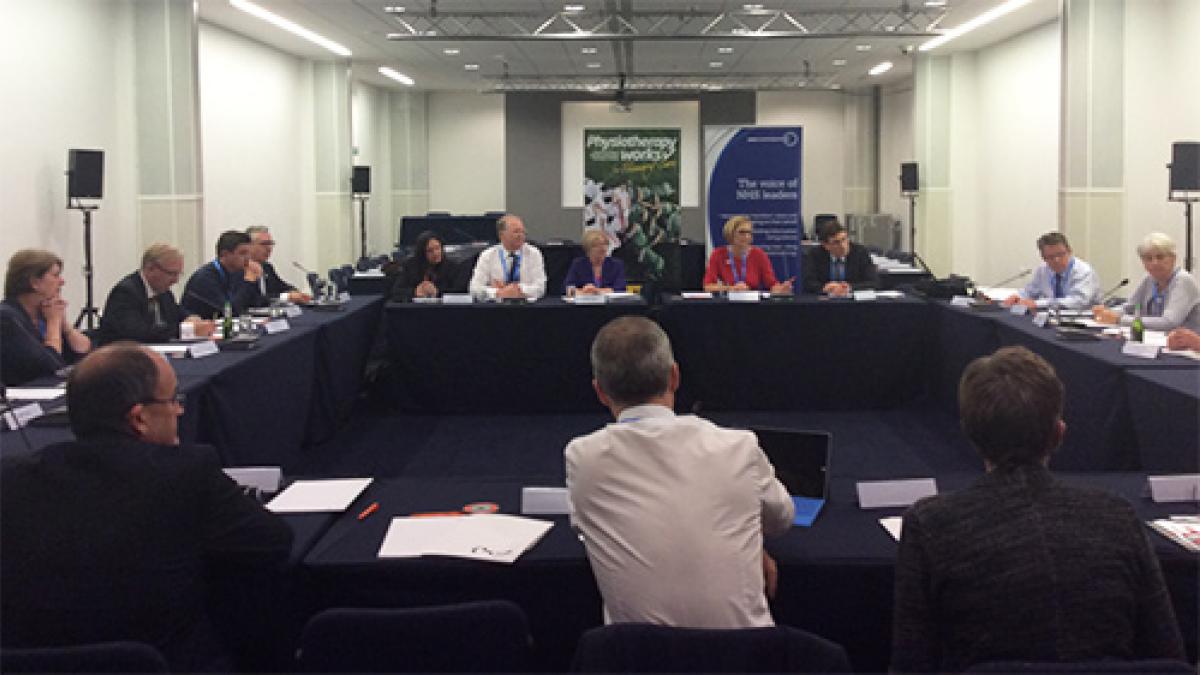The physiotherapy profession is well placed to relieve the pressures facing NHS primary care, a fringe meeting at the 2015 Conservative party conference heard.

CSP member Neil Langridge said the physio profession is ready to address the primary care 'crisis'
Neil Langridge, a consultant physiotherapist at Southern Health NHS Trust, said of the event in Manchester on 5 October: ’I was able to see some of the wider strategic opportunities that physiotherapy has to offer across NHS primary care preventive medicine.’
The invitation-only event was hosted by the CSP, the National Association of Primary Care and the NHS Confederation.
Leaders from organisations including the royal colleges of psychiatrists, surgeons and GPs, patient body National Voices, think tank the Nuffield Trust and the NHS Alliance, were at the event. It was chaired by NHS Confederation chief executive Rob Webster.
CSP chief executive Karen Middleton opened the discussion by saying there was an acceptance of the need for more diverse teams in primary care. But the question of how the NHS was going to make this happen and at a scale that would really make a difference remained.
‘We almost need to have a societal rethink about how we access healthcare, from whom and where,’ Ms Middleton told the event.
Commenting after the meeting, Dr Langridge said that with ‘redesign and rethinking’ the physiotherapy workforce was ready to address the ‘crisis’ facing primary care, due to a range of problems including a shortage of GPs.
While Dr Langridge was confident that physiotherapists can play a part in the solution, he warned that the profession had a big marketing drive ahead.
He told Frontline that the profession had a lot of positive messages that it needed to relay to influential people.
‘I still don’t think that GP and NHS leaders fully understand what we’re capable of doing,’ he said.
‘I think there’s a big gap there and we will need to fill that gap quickly. If we don’t, then we’ll miss the opportunity and there will be other healthcare providers who will.’
Asked what individual physiotherapists should do, he replied: ‘To engage quickly with local primary care leaders, their lead GPs, about looking into ways in which they can model first contact practitioner concepts into local and trust strategies.
‘And start talking to their directors about linking in with primary care as quickly as possible.’
CSP member Andrew Walton, who is executive chair of the company Connect which provides physiotherapy services in NHS GP surgeries, said that a new spirit of collaboration between the various health professional bodies was evident at the event.
‘What that says to me as a physiotherapist is that change is required and therefore that creates opportunities for us as a profession,’ he said.
‘And there is the opportunity for us to lead because of the holistic skills that we have.’
The CSP’s chair of council, Sue Rees, said after the event that, despite a consensus on the need to expand primary care teams by involving a wider range of health professionals, there were not enough physios to meet patient demand.
‘There are people queueing up to train as physios and there needs to be an increase in undergraduate places to meet that demand, she said.
Ms Rees added: ‘What was lovely was that there was a very honest discussion about how we all need to be not so professionally protective.’
Number of subscribers: 0